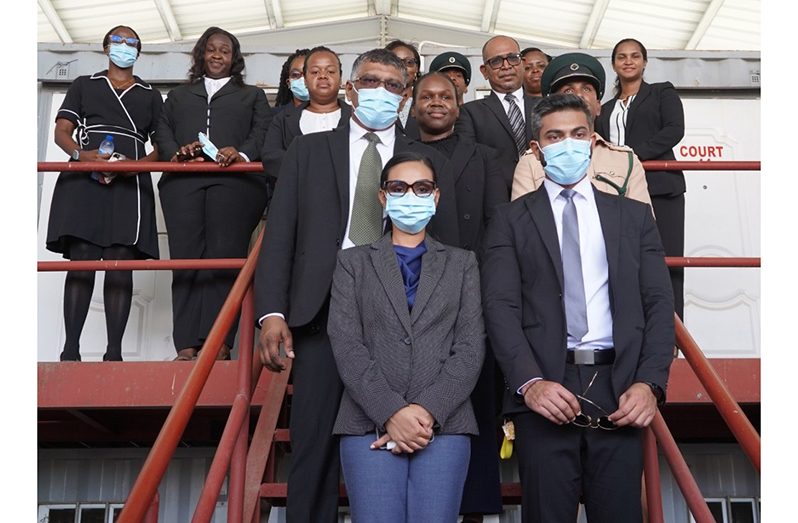—Chief Justice advises new magistrates
IN a recent address to nine new magistrates, Chief Justice (ag) Roxane George, S.C., emphasised the critical role of impartiality and dedication to justice.
Addressing a recent orientation session for them, she stressed the importance of adhering to the core principles of fairness, integrity, and independence in their judicial responsibilities.
“You do not represent either side; you now represent justice,” she asserted, urging them to embody integrity and strive for competence, efficiency, and effectiveness in their roles.
The newest members of the magistracy are Attorneys-at-Law Abigail Gibbs, Michelle Matthias, Teriq Mohammed, Shivani Lalaram, Tamieka Clarke, Orinthia Schmidt, Ravindra Mohabir, Omadatt Chandan, and Tuanna Hardy.
The Judicial Service Commission (JSC) recently appointed them following a rigorous hiring process.
The JSC is a constitutional body that deals with issues pertaining to judicial officers’ appointments, disciplinary action, removals, and promotions.
They took the oath of office before Prime Minister Mark Phillips on February 20.
In her address to the magistrates, Chancellor of the Judiciary (ag), Justice Yonette Cummings-Edwards, cautioned them that their conduct both inside and outside the courtroom, matters; she stressed the need for judicial officers to uphold standards of respect and decorum at all times.”
The goals of the orientation programme were to ensure that judicial ethics are the basis for all conduct; to explain key aspects of the judicial function; to assist in the smooth transition from bar to bench; to highlight the importance of maintaining and updating knowledge of the law; to provide information on administrative matters and to emphasise the importance of judicial wellness.
A tour of the Georgetown Magistrates’ Court, and a visit to the Lusignan Prison were also included in the programme.
The magistrates were also provided with presentations on the following topics: the judicial environment; jury list revision; managing the courtroom; managing misconduct in the court; adjudicating in civil cases; ethical and procedural issues; bail; sentencing; domestic violence; maintenance; cases involving affiliation and liability orders; admissibility of evidence; dealing with traffic-ticket matters; Drug Treatment Court; disclosure; human trafficking; judgement writing; inquests; juvenile-justice cases; human rights and adjudication; mental health matters and judicial wellness.
Presentations were also done by key stakeholders outlining the relationship between the courts and these stakeholders.
These included the Chambers of the Director of Public Prosecutions, the Guyana Prison Service, Survivors Advocates, the Probation Service and the Child Care and Protection Agency.
At the end of the programme, the magistrates were assigned to sit with various magistrates before being assigned to their own courts.




.jpg)










